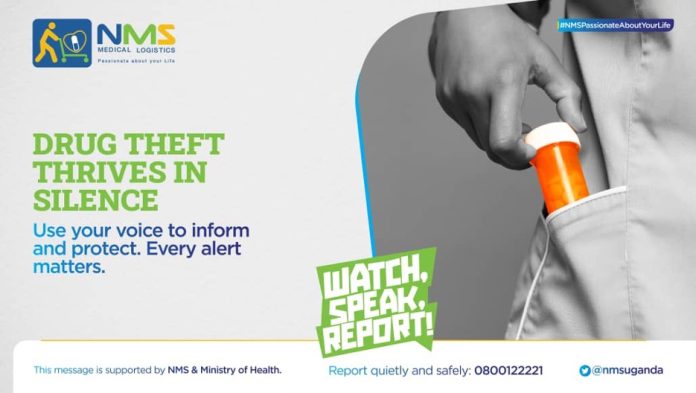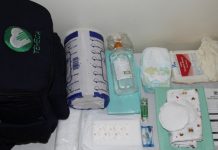Uganda’s National Medical Stores (NMS) General Manager Moses Kamabare has called for health workers convicted of stealing government medicines to be banned from practising for at least ten years, warning that pilferage of essential drugs continues to undermine the country’s health system.
Speaking on KFM’s Hot Seat radio programme in Kampala, Kamabare said professional councils must impose harsher penalties on offenders to deter what he described as “a crime against the people.”
“If a health worker is caught stealing government medicines, their registration should be removed for a minimum of ten years,” Kamabare said. “You are not a trader looking for profit. You know the harm you cause when you deny patients treatment.”
He said the NMS was strengthening oversight through the embossment of all government-supplied medicines with the words “Government of Uganda – Not for Sale”, digital tracking of deliveries, and real-time monitoring of supply trucks via GPS.
Theft and diversion of medical supplies remain a major challenge in Uganda’s health system, despite NMS delivering essential medicines to over 3,400 public health facilities every two months. Kamabare said some workers create “artificial shortages” by selling drugs meant for government facilities through private outlets.
“We find health centres claiming stock-outs, yet the same medicines are being sold in nearby private clinics. That’s deliberate diversion,” he said.
The NMS head said his agency’s trucks are fitted with GPS systems that automatically shut off if drivers deviate from their assigned routes. He added that local leaders, including Resident District Commissioners and Members of Parliament, receive SMS alerts each time a consignment reaches their district.
Kamabare’s comments came as NMS rolled out a nationwide media campaign, “From Warehouse to Your Health Facility,” aimed at promoting public awareness about free access to government medicines and transparency in the health supply chain.
“Government medicines are free. Don’t pay for embossed drugs. If you see them on sale, report to police or the State House Monitoring Unit,” Kamabare said.
Uganda’s Ministry of Health has not yet indicated whether it will adopt the proposed sanctions, but the call has reignited debate on professional ethics and accountability in the country’s public health sector.








